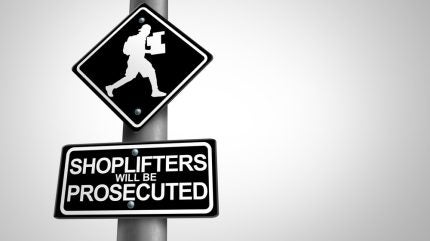
The Crime and Policing Bill has completed its Second Reading in the House of Lords and will now proceed to the Committee Stage.
The milestone change in retail crime legislation comes amid mounting concern over theft and violence in the retail sector, and forms part of the UK government’s ongoing efforts to curb shoplifting and protect retail workers.

Discover B2B Marketing That Performs
Combine business intelligence and editorial excellence to reach engaged professionals across 36 leading media platforms.
New measures target retail crime threshold and worker safety
Key changes embedded in the retail crime legislation include the removal of the £200 threshold for so-called “low-level” theft.
Under the existing framework, shoplifting of goods valued at £200 or less has typically been treated as a minor offence; the Bill proposes that all shop theft be treated as “general theft” with potentially more serious court procedures.
Another major provision introduces a standalone offence of assaulting a retail worker. The factsheet accompanying the Bill states that the offence will carry a maximum penalty of six months’ imprisonment and/or an unlimited fine.
These measures aim to send a clear signal that both theft and violence in stores are unacceptable and will no longer be regarded as lower-tier crimes.

US Tariffs are shifting - will you react or anticipate?
Don’t let policy changes catch you off guard. Stay proactive with real-time data and expert analysis.
By GlobalDataRetailer reaction and calls for broader protection
Industry voices have welcomed the progress of the Bill. British Retail Consortium (BRC) policy advisor Lucy Whing said:
“We are glad to be one step closer to the implementation of the Crime and Policing Bill. As the government takes action to address retail crime, retailers hope this Bill will play a vital role in protecting retail workers from harm and tackling the surge in theft.”
She added: “The Bill will remove the £200 threshold for ‘low level’ theft … It will also introduce a standalone offence for assaulting a retail worker, which will increase sentencing and improve the visibility of violence against retail workers so that police can allocate the necessary resources to tackle this challenge.”
At the same time, Whing emphasised that protection must extend further: “It remains unclear if the offence will cover delivery drivers … We call on the government to ensure the final Act ensures the extension of protections to delivery drivers.”
Retail trade bodies such as the Association of Convenience Stores have also pressed for greater police resources, improved reporting mechanisms and better support for small stores.
Context: retail crime soaring and legislative urgency
Retail crime in the UK has been rising sharply. The government factsheet notes that police recorded 516,971 shop-theft offences in the year ending December 2024 — a 20 % year-on-year increase and the highest level since the current counting rules began.
According to the BRC, violence and abuse in retail reached around 737,000 incidents in 2023-24, up from 475,000 in the previous year.
The Bill therefore forms part of the government’s broader “Safer Streets” agenda, which also encompasses measures on anti-social behaviour, weapons offences and online safety.
Retailers argue the legislative changes come at a critical moment. With the removal of the low-value theft threshold, many expect tighter police response and higher prosecution rates.
Nonetheless, some legal and civil-liberties groups caution that the Bill brings significant changes in prosecutorial scope and sentencing which will need careful parliamentary scrutiny.
As the Bill moves into the Committee Stage in the Lords, retail industry stakeholders and union representatives will continue to monitor developments — particularly calls to widen the scope of worker- protections to include delivery drivers, customer-facing staff and those working beyond the shop floor.





